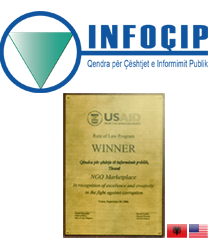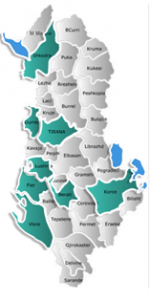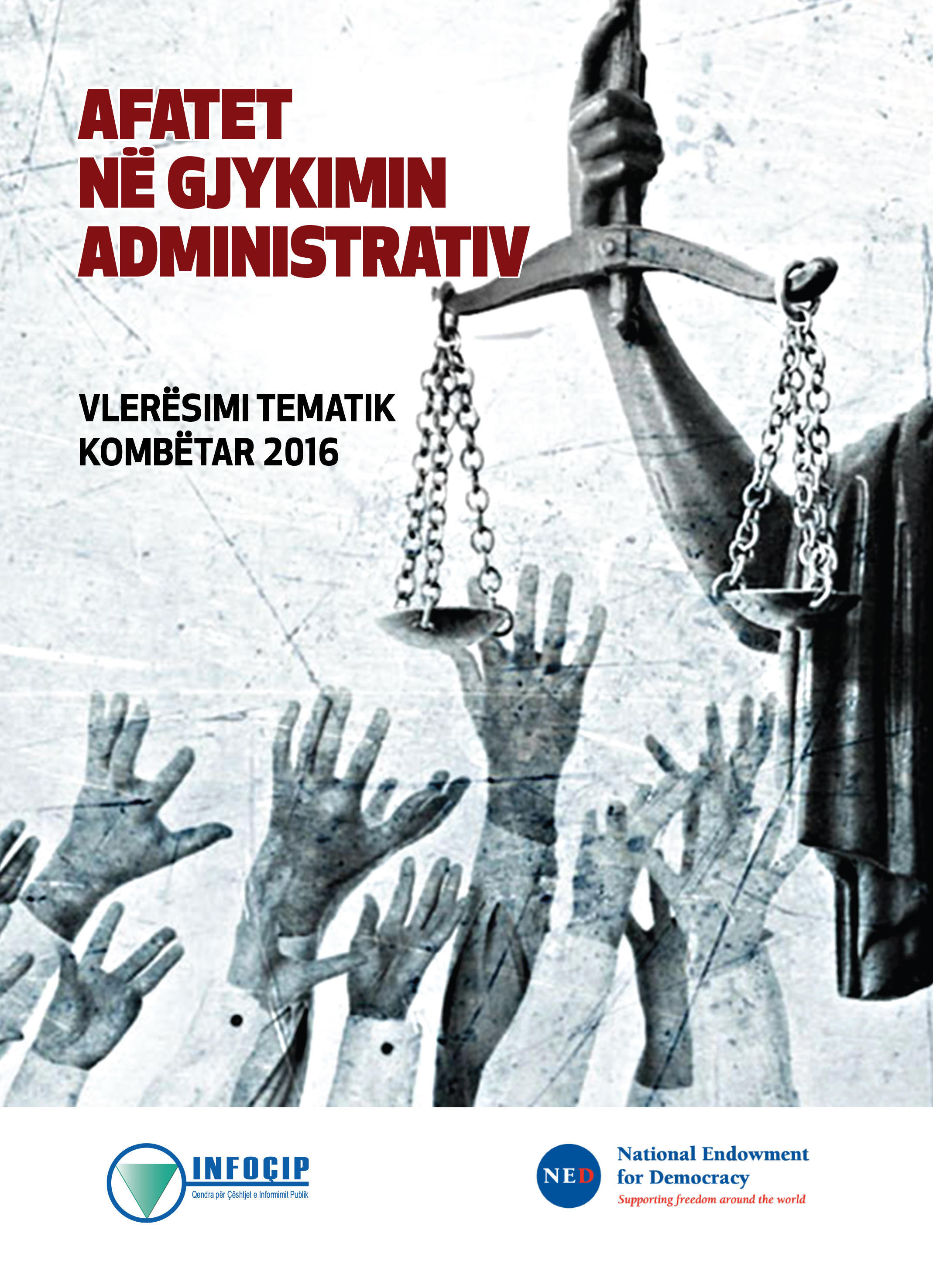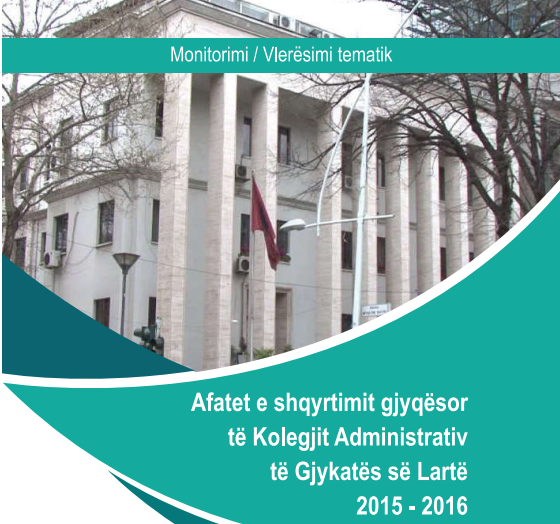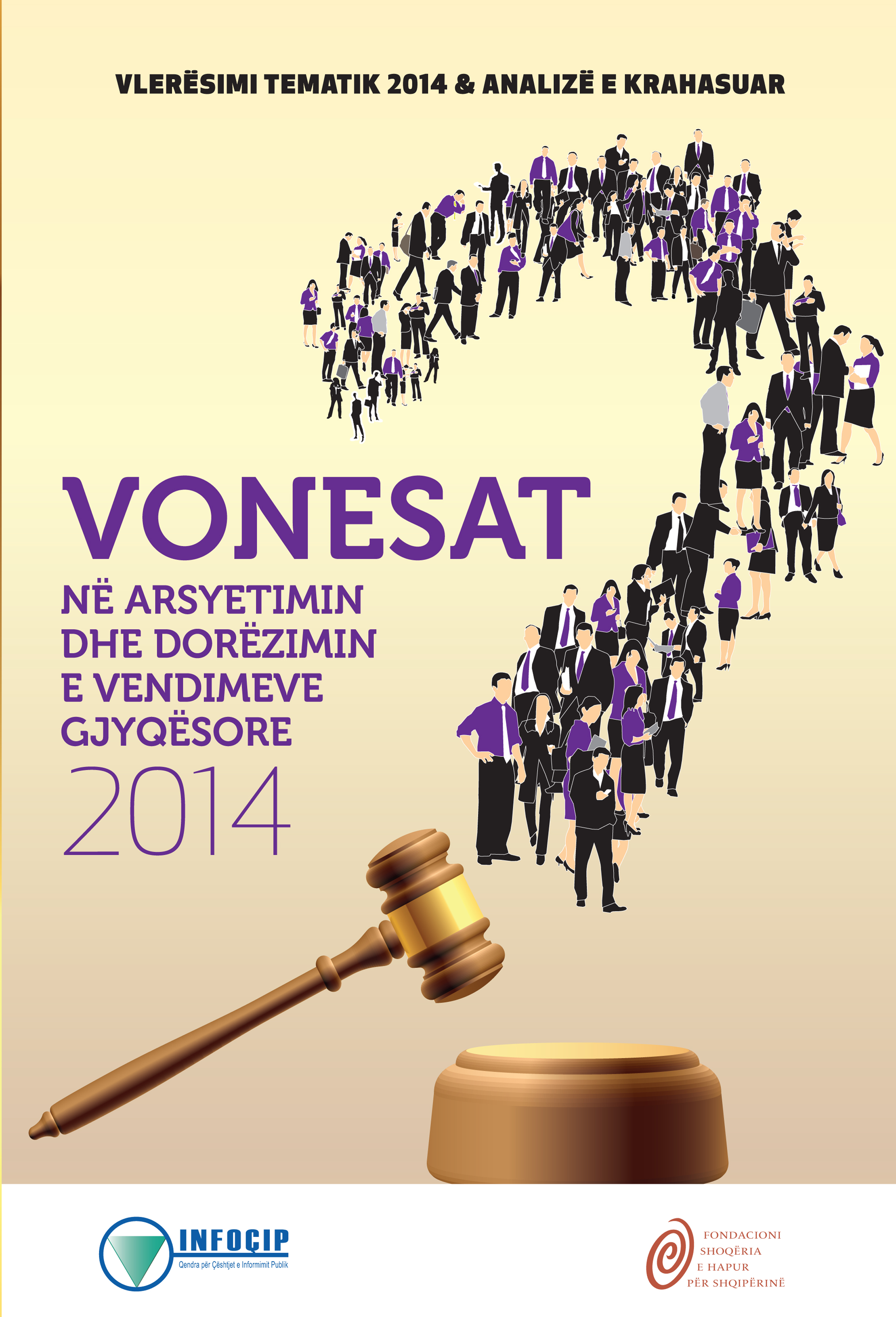Thematic Evaluation on length of proceedings on Administrative Chamber of the Hight Court of Albania
INFOCIP released on August 25 the findings of a special monitoring on the High Court of Albania. A thematic Evaluation on length of proceedings on Administrative Chamber of the Hight Court of Albania was carried out by INFOCIP, as supported by National Endowment for Democracy (Washington D.C.) to indicate compliance with legal provisions and to identify and expose most extreme delays in judicial review, as conducted by this important court. The findings were exposed to the Albanian public through a press conference, attended by all media.
The findings elaborated by INFOCIP are to be considered very disturbing, both in terms of time consumed to conclude judicial review and time to deliver the fully reasoned decisions. The exposure of facts and data from the Supreme Court is done for the first time ever in Albania. Due to the configuration of the courts System in Albania, the Supreme Court has been never submitted to any other institution’s control nor evaluation. Therefore, the monitoring conducted by INFOCIP has historic value as well, representing a milestone in this respect.
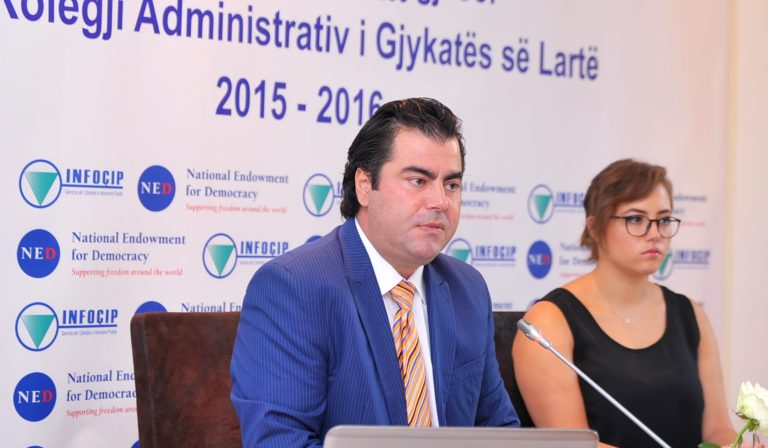
- Findings for 2016
- Judicial review
The Supreme Court examines the cases within 90 days from the submition date by the court where the recourse has been filed (Article 60, paragraph 2 of Law No. 49/2012, as amended).
During 2016, the Administrative College of the Supreme Court gave a total of 604 court decisions. Out of these, 575 decisions were analysed for the purpose of this evaluation. It resulted that only 2 out of 575 decisions in 2016 were reviewed within the 90-day legal limit (less than 0.3%).
The average length of an examination of an issue at the Administrative College of SC in 2016 results 820 days or 2.2 years. This figure exceeds 9 times the deadline provided by Law 49/2012, as amended.
The longest period of judicial in 2016’s ruled cases by the Administrative College is 2080 days or 5.7 years from the date of the registration of the recourse.
From the data analysis, it turns out that beyond the allowed legal deadline (90 days), the Administrative College of the SC consumed 419724 days beyond legal time limit to conclude all judicial reviews in 2016. These are approximately 1150 years. In other words, the subjects that received a Supreme Court decision on administrative cases in 2016, first had to wait all together over 11 and a half centuries for justice to be served to them by the High Court of the Republic of Albania.
- Due submition of ruled cases (final decisions+judicial file as adjudicated)
Law no. 49/2012 “On the organization and functioning of the Administrative Courts and the adjudication of administrative disputes”, stipulates that within 10 days of the announcement of the decision, the file shall be submitted to the judicial secretariat.
From the 2016 assessment, it turns out that within the legal deadline of 10 days were delivered into the Supreme Court’s secretary only 82 out of 595 decisions analyzed by INFOCIP, or 14% of the total. The rest of 513 decisions or 86% of the total have been submitted beyond this deadline. This means that for the year 2016, the provisions of Article 6, item 3 of Law 49/2012, as amended, have been applied at a rate of 14% in the Administrative College of the High Court.
The avarage time to deliver an adjudicated file to the court’s secretary is estimated to be 32.8 days or 3 times longer than the legal deadline.
From a special estimate made by the INFOÇIP assessors, it results that in total, for the ruled cases in 2016 by the Administrative Chamber of the SC, there was a total delay in submitting them to the secretary of 13225 days or about 36 years in total.
It should be noted that the contrast in this case is made with the legal deadline provided for in Article 64, point 3 of Law 49/2012, as amended, and not the one contained in Article 19 of Law no. 8588, dated 15.3.2000, as amended.
***
- Finding for 2015
- Judicial review
During 2015, the Administrative College (chamber) of the Supreme Court of Albania ruled a total of 710 recurse cases. It resulted that only 4 out of 709 decisions in 2015 were reviewed within the 90-day legal limit (less than 0.3%).
The average length of an examination of an issue at the Administrative College of SC in 2015 results 954 days or 2.6 years. This figure exceeds 10 times the deadline provided by Law 49/2012, as amended.
The longest period of judicial in 2016’s ruled cases by the Administrative College is 1889 days or 5.3 years from the date of the registration of the recourse.
From the data analysis, it turns out that beyond the allowed legal deadline (90 days), the Administrative College of the SC consumed 616572 days beyond legal time limit to conclude all judicial reviews in 2015. These are approximately 1600 years. In other words, the subjects that received a Supreme Court decision on administrative cases in 2015, first had to wait all together over 16 centuries for justice to be served.
- Due submition of ruled cases (final decisions+judicial file as adjudicated)
From the 2015 assessment, it turns out that within the legal deadline of 10 days were delivered into the Supreme Court’s secretary only 65 out of 709 decisions analyzed by INFOCIP, or 9% of the total. The rest have been submitted beyond this deadline. This means that for the year 2015, the provisions of Article 6, item 3 of Law 49/2012, as amended, have been applied at a rate of 9% in the Administrative College (Chamber) of the High Court.
The avarage time to deliver an adjudicated file to the court’s secretary is estimated to be 41.8 days or 4 times longer than the legal deadline.
From a special estimate made by the INFOÇIP assessors, it results that in total, for the ruled cases in 2015 by the Administrative Chamber of the SC, there was a total delay in submitting them to the secretary of 22549 days or about 61 years in total.
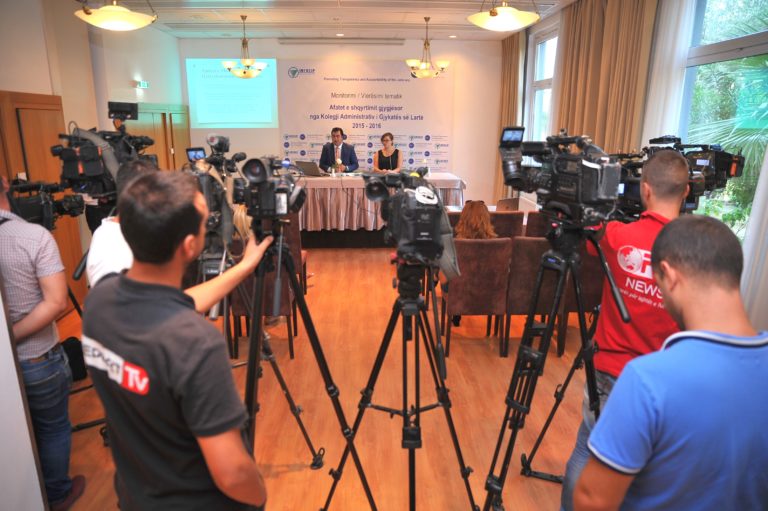
LAST RELEASED PUBLICATION
MONITORING REPORT
Recent reports/studies
Partners / Donors
Local Branches
- Citizens' Transparency Office, Durrës (19)
- Citizens' Transparency Office, Korça (9)
- Election Situation Chamber (11)
- JUDICIARY (1)
- NED (11)
- www.vendime.al (5)
Foto lajm

- CPII anounces the monitoring result for Durres Municipal Council. It must be re-elected
Where we work

